You may know the backstory of Ben Marcus’s book The Age of Wire and String—that it was written with the help of Stith Thompson’s Motif Index of Folk-Literature. Did you know the entire thing is online? If so, why the fuck didn’t you tell me?
A tail of two books, are there others?
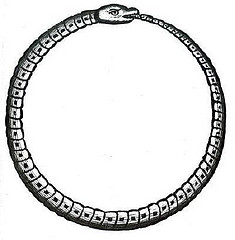 aims to celebrate and mimic the cyclical continuum of both Finnegan’s Wake, its first line being riverrun, past Eve and Adams, from swerve of shore to bend of bay and last line A way a lone a last a loved along the (duh — “along the riverrun,” pay attention) and the first and last lines of Pale Fire, Nabokov’s novel named after a “fictional” poem by John Shade: (first) I was the shadow of the waxwing slain/ By the false azure in the windowpane and (last) Some neighbor’s gardener, I guess — goes by/ Trundling an empty barrow up the lane wherein the lines are composed to predetermine the first in a never ending fateful loop like this post
aims to celebrate and mimic the cyclical continuum of both Finnegan’s Wake, its first line being riverrun, past Eve and Adams, from swerve of shore to bend of bay and last line A way a lone a last a loved along the (duh — “along the riverrun,” pay attention) and the first and last lines of Pale Fire, Nabokov’s novel named after a “fictional” poem by John Shade: (first) I was the shadow of the waxwing slain/ By the false azure in the windowpane and (last) Some neighbor’s gardener, I guess — goes by/ Trundling an empty barrow up the lane wherein the lines are composed to predetermine the first in a never ending fateful loop like this post
In Praise of Modesty
The writer was a tumbler. If not, then a tinker, carrying a hundred pots and pans and bits of linoleum and wires and falconer’s hoods and pencils and…you carried them around for years and gradually fit them into a small, modest book. The art of packing. — Michael Ondaatje, Anil’s Ghost
I think of this quotation a whole lot. I think a whole lot of this quotation. Blake’s interview of Andrew Zornoza made me think of it, the 14 years in the making part. My friend working around the clock on what will be a short non-definitive but brilliant biography made me think of it. Avatar and not wanting to see a movie that proposes to break new ground, that promises to change the way I think of the movie experience, made me think of it. Immodesty is dishonesty. To think we’ll never read another book after this one. To think we’ll never see another movie, or that ever after we’ll see movies differently. To think we won’t amend and mend and expand and retract our thoughts about art-making because this time we’ve gotten it right. What hubris.
This is not to equate modesty with small physical size. This is not to equate modesty with lack of ambition. To pack, select, winnow, whittle, fit, shape, pat, balance, attend, await, and weigh the materials of life and art to make a book is honest hard work–backbreaking, eye-straining, near-impossible work, and the reward always comes too late.
A quote like this gives postmodernity a good name. To admit to sweeping up shards, gathering scraps of broken meat, to allow that one book can’t hope to contain the Whole, or even any one whole. The days of circumnavigating the globe, the days of the brave frontier have passed. Foreclosed. We have now vaster materials, but smaller places to put them in. What possibility, what call.
Writing/Editing Prompt: Kill Yr Narrator
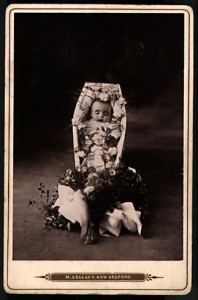
Basic: Take a first person story, new or old—one that has a beginning, a middle, and an end. Go to the bottom of the story. Press return twice after the final bit of punctuation on the final paragraph. Add a little section sign. This one:
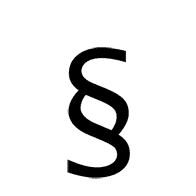
(On a Mac, it’s Option+6.)
Hit return two more times. Let another narrator take over. Explain somehow that the first narrator is dead. Reassess the story from the second narrator’s perspective.
Advanced: Take a third person story, new or old—one that has a beginning, a middle, and an end. Go to the bottom of the story. Press return twice after the final bit of punctuation on the final paragraph. Add a little section sign.
Hit return two more times. Let something else take over. Consider: if an omniscient narrator “dies,” what happens to the world of the story? Does another omniscient narrator fill the vacuum? Consider: God is dead. What now? Does the world end? Does the narrator’s creator decide to step out from behind the corpse and speak? Does the world remake itself?
Every Book and Magazine with Typos/Errors?
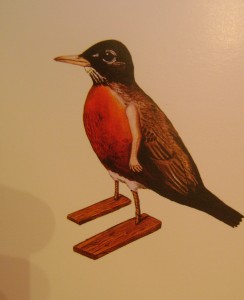 I am reading Face by Alexie and on page 35 there is a sentence that needs indenting. This a game, finding these tiny errors, locating them in magazines, canonical works, some huge publisher.
I am reading Face by Alexie and on page 35 there is a sentence that needs indenting. This a game, finding these tiny errors, locating them in magazines, canonical works, some huge publisher.
One part of me—the part editing The Broken Plate and about to teach about copy-editing—is paranoid. Many magazines feel less (or no) errors are related to the quality of the publication.
Some feel like a typo in a book is a human gesture, a beautiful mole, unsymmetrical ears, the smudge in the painting, the flaw that makes the thing.
How much is on the editor, the writer?
How closely do you look at your galleys (if you get them)?
Do you have a technique to catch errors? The writer, too near, as the worst diagnostic?
War story? One time a magazine had my word “years” changed to “ears.” That smarted a bit. Years, ears…
You?
(image by Mr. Eggers)
So Fixed Your Function
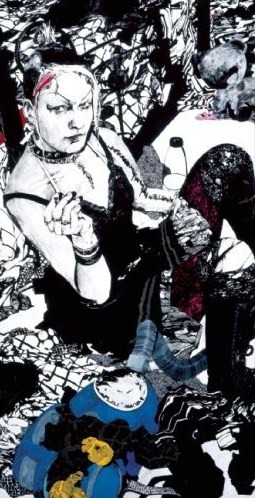 Like if I watched you brushing your teeth, you pick up toothbrush this way, start on this tooth, move that way, spit, start there, that tooth…the same method every morning. You don’t believe me? Videotape yourself.
Like if I watched you brushing your teeth, you pick up toothbrush this way, start on this tooth, move that way, spit, start there, that tooth…the same method every morning. You don’t believe me? Videotape yourself.
You drive to work two ways. Two routes, maybe. Same roads/signs/stores/sky. You could easily take some other roads/paths, maybe 40. You would see 40 new things. But you don’t.
I want you to go eat something new. Don’t cheat. Go the ethnic restaurant, produce aisle, international market—select something you have never eaten before. Eat it.
What is the point?
The Chupacabra Strikes Again (Or, A Letter from My Self on NYE)

(Sam, The World’s Ugliest Dog, chupacabra stand-in)
Dear Self,
It’s 10:30 on New Year’s Eve. You won’t make it until midnight. You’re tired and achy and your head’s swimming. You feel like throwing up.
The moon’s bright, and clouds sling tracks across the sky.
You’ve been thinking tonight, which is ever-dangerous, about why you sit down to write every day. Why do you do this thing that has very little return in the free market? That few people will ever read? That some will hate?
Self, you are too sincere, not nearly ironic enough. You are way too un-cool: hipster-with-a-fannypack-for-a-purse-uncool. Self, I know what you’re thinking—you’ve got books strewn around you on New Year’s Eve, you look drunk—but you’re thinking about urgency, the deep and monstrously incoherent need to believe in something against a backdrop of post-postmodern self-conscious irony, gluttony, and emotional vacancy.
Self, I’ve been reading over your shoulder. You think you do it because READ MORE >
They Shoot the White Girl First…
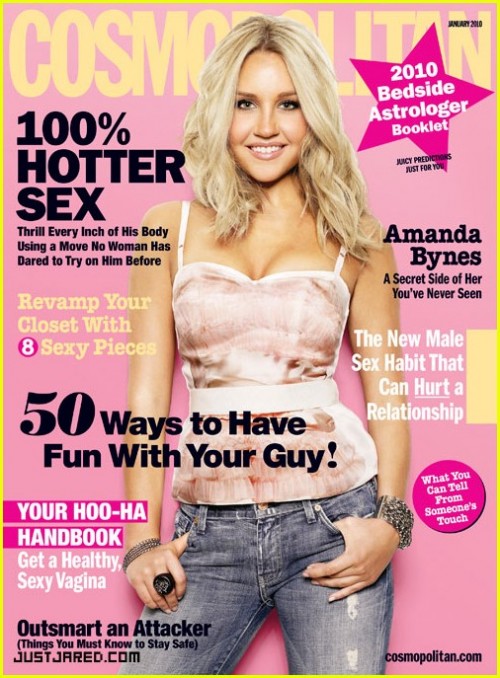 The title of this post from the opening line of Toni Morrison’s, Paradise.
The title of this post from the opening line of Toni Morrison’s, Paradise.
Opening lines are like titles. I am going to briefly discuss titles. This might help you, or will maybe interest any students you might attempt to shepherd/lose. I’ve found students often go no-title, and I am against no-title, unless you have been writing for 20 years and work in minimalist miniature black and white photos. Or do heroin.
So.
See that young lady and her cleavage (probably done by this guy) on the cover of a magazine I consider vituperation to the brain, body, beauty, soul? It is going to help me.
Don’t write about this please…
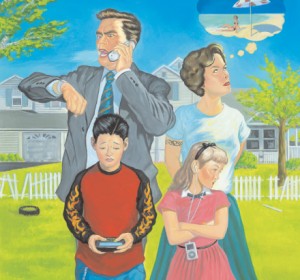 Holidays are fun. By fun, I mean unpleasant.
Holidays are fun. By fun, I mean unpleasant.
I always find it funny that especially during the holidays, people remind (ask) me not to recount what’s happened in a book. Sure, I get it: my first two books (the only ones in print) have autobiographical elements, so of course, people would be “worried” I may write about them.
But when it comes down to it, isn’t this more than a little egotistical? People are worried that by virtue of me being around them, I’ll naturally find them or their lives so compelling that I’d want to chronicle it in a future book.
I recently had this conversation with Shane Jones about all this. We talked about how everyone (by which we both meant family) thinks they can find themselves in our characters. So I ask you this:
- How often do you really steal from real life?
- Do you worry about other writers putting you in their stories? (I’ve heard horror stories about this!)
- Where is the line drawn between fiction & fiction?
It’s funny because I had this quasi-embarrassing situation arise between myself & another writer a while back & my first response was: “Please don’t write about this!” Why is this the most natural reaction? I’m totally guilty of my own criticism…

